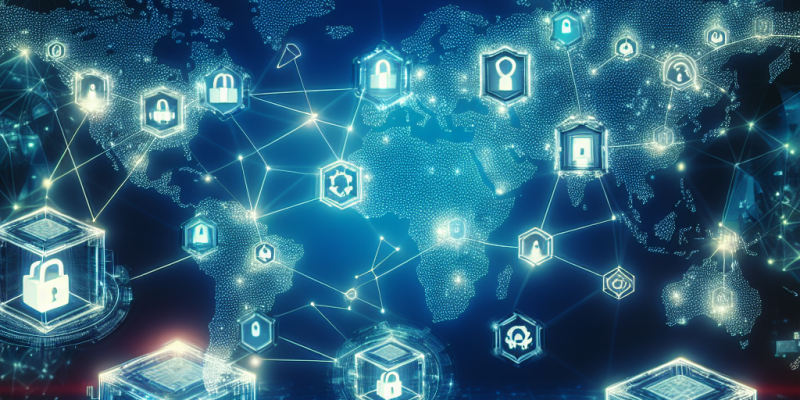Decentralized Security: How Blockchain is Shaping Network Solutions in 2025

In 2025, the world of technology is evolving at a fast pace. One of the most exciting trends is decentralized security, largely driven by blockchain technology. This article will explore how blockchain is transforming network solutions and enhancing security across various sectors.
Understanding Decentralized Security
Decentralized security refers to a system where control is distributed instead of being concentrated in a single entity. Blockchain, which is a decentralized ledger that records transactions across many computers, is at the forefront of this movement. Unlike traditional security systems, where a central authority manages all data, decentralized security allows users to maintain control of their information.
Why Blockchain?
-
Immutability: Once data is recorded on a blockchain, it cannot be easily altered. This feature makes it extremely difficult for hackers to change information, providing a robust layer of security.
-
Transparency: All transactions on a blockchain are visible to all participants. This transparency helps build trust among users, as they can verify the integrity of the data.
-
Reduced Risk of Single Points of Failure: In traditional systems, if one server goes down or is attacked, the entire system may be compromised. With decentralized security, even if one node is attacked, the others continue to operate, enhancing overall system resilience.
Current Applications in 2025
1. Financial Services
The financial industry has significantly adopted blockchain technology. Banks and financial institutions are using blockchain for secure transactions. Decentralized finance (DeFi) platforms have emerged, allowing users to trade, lend, and borrow assets without relying on central authorities. This shift not only provides greater security but also increases access to financial services for people worldwide.
2. Supply Chain Management
Blockchain is revolutionizing supply chain management by providing transparent tracking of products from source to consumer. Companies can verify the authenticity of goods, ensuring that they are not counterfeit. This level of transparency mitigates risks and enhances customer trust.
3. Healthcare
In healthcare, patient data security is crucial. Blockchain allows for secure sharing of medical records between authorized parties while maintaining patient privacy. This technology reduces the risk of data breaches and improves the accuracy of medical information available to healthcare providers.
4. Identity Verification
Identity theft is a growing concern. Decentralized identity solutions using blockchain can store personal information securely and allow users to control who has access to it. This ensures that sensitive data is kept safe from unauthorized access.
Looking Ahead: Challenges and Opportunities
While blockchain offers numerous benefits, it is not without challenges. Scalability is one major issue; as networks grow, processing transactions can become slower and more complex. However, innovative solutions, such as layer-two protocols, are being developed to address these challenges.
Moreover, regulatory frameworks are still evolving. Governments and organizations are working to establish clear guidelines for blockchain use, which will likely shape its future. By 2025, it is expected that regulatory clarity will enhance trust in decentralized security solutions.
Conclusion
As we move through 2025, decentralized security is set to redefine how we approach data protection and network solutions. With blockchain technology leading the way, we can expect more secure, transparent, and resilient systems across various sectors. The future of security is decentralized, and its impact will be felt for years to come. Embracing this change will be essential for businesses and individuals alike as we navigate the digital landscape.














